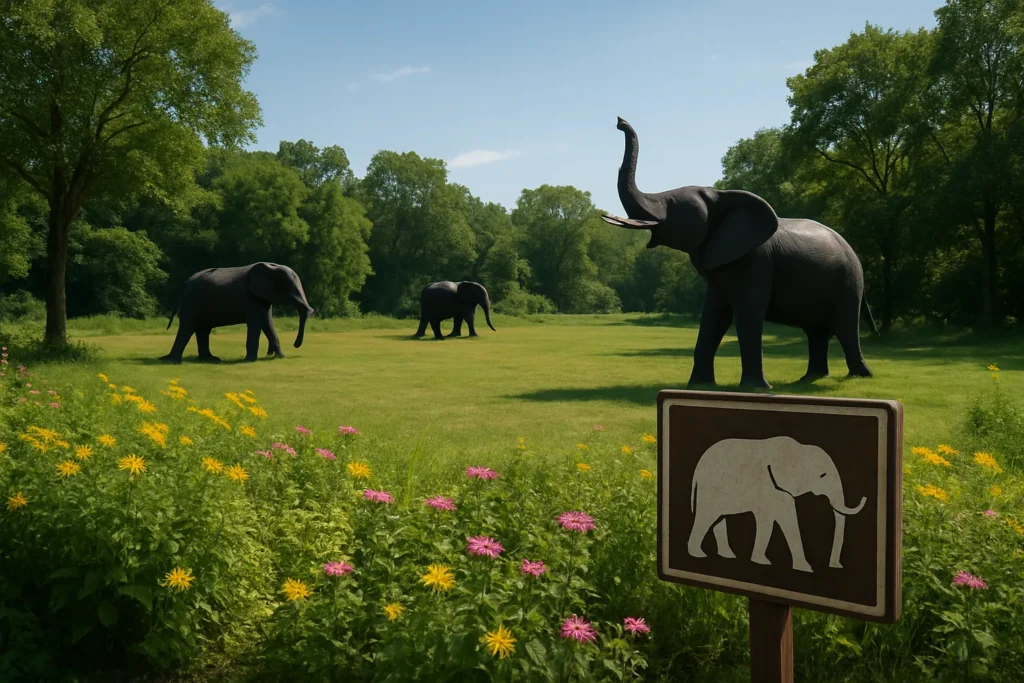When Animal Advocacy Collides with Politics
At the heart of Los Angeles’ latest animal welfare debate, a familiar—but unexpected—name has taken center stage. Cher, the iconic singer and relentless animal rights advocate, is leveraging her influence to halt what she sees as a profoundly unjust transfer of two long-suffering Asian elephants, Billy and Tina, from the Los Angeles Zoo to the Tulsa Zoo in Oklahoma. For Cher, and a growing chorus of activists and everyday Angelenos, this isn’t just another relocation—it’s a battle over the very definition of compassion and ethical stewardship in public policy.
For decades, the elephants have been living symbols of a system that, despite best intentions, still often fails the animals in its care. Billy, dubbed “the world’s saddest elephant,” has languished in isolation since 1989, exhibiting stress behaviors common in captive pachyderms: repetitive swaying, depression, and withdrawn socialization. Tina, formerly confined to a private facility, now shares her fate. Now, just as public momentum for sanctuary release crests, city officials and zoo leadership are doubling down on a transfer to another zoo—a facility activists argue fails to meet the definition, or even the spirit, of a true sanctuary.
Los Angeles resident John Kelly and his attorney Melissa Lerner have ignited a legal battle, filing suit to stop the move. Their motion for a temporary restraining order aims to put the brakes on what they call a deceptive and harmful handoff. At the center of their case is one provocative allegation: that city officials promised the public a “preserve” but are delivering yet another concrete enclosure. For Cher, these legal intricacies are more than procedural gamesmanship—they are a matter of urgent morality.
What Does Sanctuary Really Mean?
Time and again, proponents of progressive animal welfare have pointed out that not all moves are created equal. The term “sanctuary” is loaded with expectations—for safety, for healing in a space that mimics wild habitats, for lives lived with peace and dignity, not simply fewer bars and more grass. An Oklahoma zoo, no matter how expansive, cannot substitute for an authentic sanctuary where Billy and Tina could roam vast natural terrain, forage, and interact on their own terms.
That distinction is crucial. Dr. Joyce Poole, an internationally renowned elephant behaviorist, notes in a 2021 interview with National Geographic that “even the largest urban zoos cannot meet the emotional and social needs of elephants.” Years of testimony from former zookeepers and rescue organizations reinforce her view: Elephants deprived of complex social bonds and open landscapes often suffer shortened lifespans, chronic ailments, and severed spirits. The American Sanctuary Association and the Global Federation of Animal Sanctuaries have issued detailed guidelines for elephant care, none of which are typically met by standard zoological parks.
So why resist the sanctuary option? The answer, critics argue, crosses into the realm of institutional inertia. Theodore Reed, former director of the National Zoo, once warned, “Zoos must not become prisons masquerading as nature preserves.” That warning, ignored too often, resonates as LA Zoo leadership clings to outdated models—insisting on control, citing supposed logistical nightmares, and overlooking the very real success stories achieved by sanctuaries worldwide.
“Billy and Tina have served their time in confinement. They deserve the chance to live out their lives in peace and dignity.” — Cher, Free the Wild Charity
Beyond that, Cher’s own activism is far from symbolic. She has helped lead the 2020 relocation and rehabilitation of Kaavan—the so-called “world’s loneliest elephant”—from a Pakistani zoo to a lush Cambodian sanctuary. According to Dr. Amir Khalil of Four Paws International, that transformation “gave Kaavan a second life.” Why, then, should Billy and Tina be denied that same reprieve?
The Ethical Imperative: Animal Rights as Civic Responsibility
Public outcry over Billy and Tina’s plight has grown into a test for Los Angeles—one that stretches far beyond animal welfare circles. What responsibilities do public institutions owe to sentient beings in their care? The answer, once mired in excuses about education and research, has evolved. Polling from the Pew Research Center in 2023 shows that a clear majority of Americans now favor moving aging, solitary elephants to accredited sanctuaries rather than zoos, with support highest among older, progressive demographics.
Yet entrenched interests and bureaucratic hesitancy have slowed progress. The Los Angeles Zoo has insisted it is acting in the elephants’ best interests—yet refuses to meaningfully engage with sanctuary proposals, or respond to the detailed concerns filed in Lerner and Kelly’s court motion. This, according to Harvard ethicist Dr. Martha Nussbaum, falls into a pattern: “When the humane alternative carries a higher short-term price tag, institutions almost inevitably defer, leaving the powerless to bear the cost.”
The lawsuit, bolstered by Cher’s formal declaration and mounting local pressure, is forcing a public reckoning. Mayor Karen Bass and the LA City Council face a defining choice—one that speaks volumes about the city’s commitment to progressive, compassionate values. Will policy be shaped by tradition and convenience, or by the best interests of those whose voices are never heard? History has judged harshly those who put spectacle before well-being, profit before principle.
A closer look reveals the potential for redemption. Cher’s proven track record, and the vocal advocacy of Angelenos, has already led to the successful transfer of mistreated animals elsewhere. Granting Billy and Tina “the chance for peace and dignity,” as Cher so forcefully puts it, would not only align Los Angeles with the most advanced humane standards—it would set a bold precedent for other cities. Once again, it seems, pop culture’s most resonant voices can give power to those who have none.

